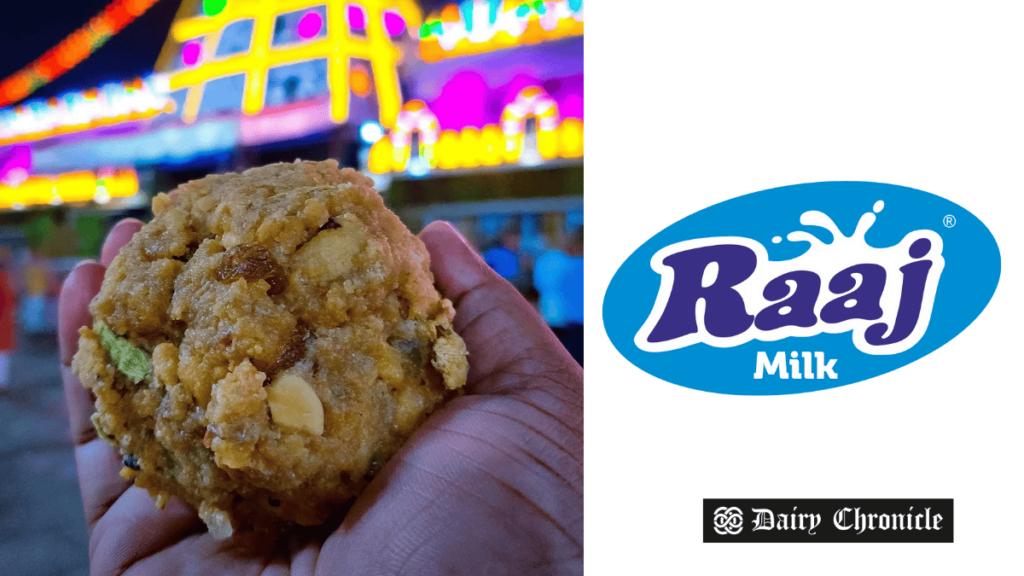Tirupati laddoos face a significant controversy over alleged ghee adulteration involving A R Dairy Food, which has denied claims of using fish oil and beef tallow. This religious and political issue highlights concerns about quality standards, pricing, and the sanctity of sacred offerings, as investigations continue in Andhra Pradesh.
A significant controversy has erupted in India regarding the purity of ghee used in the preparation of the iconic Tirupati laddoos, with A R Dairy Food Private Limited, a Tamil Nadu-based supplier, firmly denying allegations of adulteration. The laddoos, considered sacred offerings to millions of devotees at the Tirumala Tirupati Devasthanams (TTD) in Andhra Pradesh, are central to the dispute.
The controversy started when a laboratory test reportedly revealed the presence of fish oil and beef tallow in the ghee used to prepare the laddoos. Andhra Pradesh Minister and TDP leader Nara Lokesh Naidu alleged that this adulteration occurred under the previous YSR Congress Party (YSRCP) government’s oversight, accusing them of awarding contracts to the lowest bidder at the cost of quality.
A R Dairy Food, one of the suppliers, has strongly denied these accusations. The head of quality control at the company stated that the ghee sample in question could not have come from them, explaining that the laboratory report did not directly identify their company and that there is a possibility of false positive results in such tests. She further clarified that TTD only accepted their ghee after rigorous quality testing and that the company stopped supplying ghee after July when TTD changed vendors.
The allegation of adulteration is particularly sensitive due to the religious significance of the laddoos, which are distributed as prasad to millions of pilgrims visiting the Tirupati temple, one of India’s holiest sites. The use of animal fat, especially fish oil and beef tallow, is a serious concern in a country where religious dietary practices are deeply respected.
The political angle of the controversy is evident, with TDP spokesperson Anam Venkata Ramana Reddy questioning how the YSRCP government allowed a contract to be awarded at such a low price of $3.84 (Rs 320) per kilogram of ghee, when the market rate for pure ghee is around $10.80 (Rs 900) per kilogram. He claimed it was impossible to supply pure and unadulterated ghee at that price, accusing the previous administration of compromising on quality to cut costs.
Previously, the Karnataka Milk Federation (KMF) was the primary supplier of ghee for the Tirupati laddoos, offering it at $4.80 (Rs 400) per kilogram. However, in 2023, TTD decided to seek new suppliers through e-tenders, awarding contracts to other companies. KMF’s chairman had raised concerns at the time, saying that any supplier offering ghee at significantly lower prices would have to compromise on quality.
After the TDP-led National Democratic Alliance (NDA) government came to power in June 2024, the contracts with these new suppliers were canceled, and TTD renewed its agreement with KMF. The federation has since resumed supplying its Nandini brand ghee, which has long been associated with the preparation of the sacred laddoos. Although KMF is supplying ghee at $5.70 (Rs 475) per kilogram, slightly lower than before, the federation expects to absorb any losses by benefiting from increased sales and enhanced brand reputation due to their association with the temple.
As the investigation into the alleged adulteration continues, the issue has triggered both religious and political reactions across Andhra Pradesh. The purity of the Tirupati laddoos is a matter of great concern for devotees, and any breach in quality could damage the trust placed in the temple’s offerings. The public is now awaiting further clarification and hoping for swift action to ensure the sanctity of the laddoos is maintained.
Also Read- Religious Concerns Rise in India as Tirupati Laddoo Ghee Faces Adulteration Scandal



